A Xenophile's Guide to Iceland
 22.10.08 @ 11:15:15. Archivado en Europa, Universidades, Amistad Europea Universitaria, Sociogenética, Convivencias europeas
22.10.08 @ 11:15:15. Archivado en Europa, Universidades, Amistad Europea Universitaria, Sociogenética, Convivencias europeas
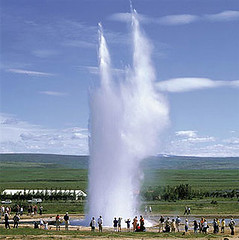 "Iceland is a small place with a big soul. It is designed to startle you all the time".
"Iceland is a small place with a big soul. It is designed to startle you all the time".
Islandia puede dar una lección al mundo sobre cómo salir de la actual crisis mundial, particularmente virulenta en este pequeño-gran país de formidables contrastes.
"You know, when you live in a country which moves alarmingly under your feet every five years or so with an earthquake or a volcanic eruption, you face, like the saga heroes of old, with a choice of two courses of action, neither of them good: Either to flee the country and all its hazards, or to stay and brave them out. (1)
For more than 1100 years the people of Iceland have chosen to stay and brave them out. The elements have seldom been friendly, conditions have often been intolerably harsh. Merely to survive has been a desperate and chancy business in itself".
-oOo-
Al igual que lo ha hecho múltiples veces en el pasado con otras crisis mucho más graves, Islandia puede dar una lección al mundo sobre cómo salir de la actual crisis financiera mundial, particularmente virulenta en este pequeño gran país de formidables contrastes, que se ha visto atrapado por las imprudentes maneras de actuar a la americana, a pesar de su proverbial independencia de criterio tradicional.
Lo hará gracias a sus mujeres. Así lo piensa y lo proclama muy alto Svafa Gronfeldt, rectora de la Universidad de Reikiavik: "Debemos reflexionar sobre la humillación que hemos sufrido, abandonar estos viejos valores vikingos y reemplazarlos por otros... {Lo haremos} Con valores femeninos".
Islandia es el país con el porcentaje más alto de mujeres con empleo; pero la presencia de sus proverbiales valores femeninos no se ha hecho notar durante la crisis mundial actual, porque, como lo deplora la rectora de la Universidad de Reikiavik, hasta ahora casi todas las mujeres se han quedado confinadas en el segundo o tercer nivel empresarial. "Las mujeres tienen la preparación y la habilidad, y esta crisis va a acelerar el movimiento hacia arriba...". Su universidad está construyendo un campus nuevo basado sobre las ideologías de funcionamiento interactivo y comunicativo, ideologías vistas generalmente como maneras de aprender más "femeninas".
Lo mismo piensa la brillante consultora financiera Halla Tomasdottir, presidenta de Audur Capital, que hace suyo el titular del Financial Times: ""Las Mujeres islandesas {vamos} a limpiar el desorden masculino": Los últimos cuatro años he estado observando, incrédula, el modelo imperante de inversiones. Todo pensado a corto plazo, sin tomar en cuenta las consecuencias sociales; apostar todo a enormes ganancias sin evaluar seriamente los riesgos; un grotesco exceso en los incentivos a los individuos que lideran las inversiones, y, en general, una preponderancia desmesurada de testosterona en la toma de decisiones... Las mujeres islandesas como las de todo el mundo son más prácticas que los hombres, tienen los pies más firmemente plantados en la tierra y estudian con más mesura las consecuencias de los riesgos que toman".
Para no caer en el maniqueísmo xenófobo de las antinomias fáciles, escritas estos días por periodistas mal informados, hay que equilibrar estos juicios autocríticos de nuestras amigas islandesas con el justo aprecio, tanto xenófilo como propio, de la gran tradición cultural islandesa, que se ha distinguido siempre por saber sobreponerse al enorme reto del medio inhóspito en que este pueblo logra sobrevivir desde hace más de un milenio: "Somos un pueblo de sobrevivientes por definición. El haber creado una buena vida aquí ha sido fruto de una tremenda imaginación y capacidad práctica".
Damos la palabra a la Rectora de la Universidad de Islandia, que nos recuerda la calidad y la pertinencia de los saberes que sus programas universitarios ofrecen al maltrecho mundo globalizado actual:
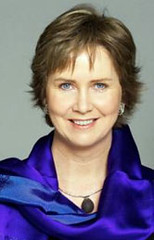 The Rector at the University of Iceland
The Rector at the University of Iceland
Knowledge knows no borders. Today’s young people view the entire world as a potential venue for learning and work, and they are drawn to places that offer the best opportunities and facilities. The University of Iceland strives to be a learning institution on a global scale and to create opportunities for young people – those who reside close by as well as those who come from far away.
The University of Iceland is part of a global network of learning. It is both a laboratory of knowledge and a dynamic energy centre that acts as a generator in the creation of a modern and progressive Icelandic society. Since its founding in 1911 the University has enjoyed constant growth and development, and has made an important contribution to making Iceland one of the wealthiest countries in the world.
In the last decade the University of Iceland has become a growing international university. In all its principal fields of scholarship the University has scientists who have studied at many of the world’s leading universities and are respected leaders in their fields. The international networks created by its faculties, academics and scientists are among our most valuable assets. The University of Iceland places ever-increasing emphasis on international cooperation and agreements have been reached with over 300 universities overseas on student and faculty exchanges. The University is firmly committed to the reception of international students and scholars and has been hard at work to offer them attractive opportunities for study and research.
The University of Iceland tries to offer courses and research opportunities which are unusual and in some cases unique to this small and vibrantly developing country. Many of our international students come to learn the Icelandic language and courses specific to our culture, heritage and nature, while others come to take advantage of courses and research opportunities in other fields.
The rapid rise in the number of international students studying at the University are facts which speak for themselves. We welcome this development, both with respect to our contribution to the international community and also the contribution of international students to the University of Iceland. Global diversity adds depth, character and stimulation to our academic environment and is much appreciated.
Welcome to the University of Iceland.
Dr. Kristín Ingólfsdóttir
University of Iceland
Main Building
101 Reykjavik, Iceland
e-mail: rektor@hi.is
tel: +354 525-4302
Education
The University of Iceland has a lot to offer to both exchange and regular international students, on all academic levels. Most faculties and departments give courses in English. One of the main attractions for international students is the studies that are unique to Iceland. Examples of those are Icelandic Studies for Foreign Students, Medieval Studies, Earth Sciences, studies in Environment and Natural Resources, studies in Renewable Energy Engineering and an international LL.M. programme.
Icelandic Studies for Foreign Students
Icelandic Studies for Foreign Students comprises two main sections: a language component, where students receive instruction and training in writing, speaking and understanding modern Icelandic, and a cultural component, which deals with the language, literature and history of Iceland. In this latter component, students read both Norse and modern Icelandic literature and receive instruction in ancient and modern history as well as studying the morphology, syntax and phonetics of modern Icelandic. Together, the language and the cultural components form a whole in which students see how they have interacted historically as well what influence they continue to exert on one another.
Icelandic Studies for Foreign Students is an option available to all international students: Regular students who wish to complete one year, two years or three years of a BA programme, exchange students who wish to study Icelandic during their exchange period in Iceland, or any international students in other academic disciplines who wish to take a course or two in Icelandic language or culture.
M.A. in Medieval Icelandic Studies
This programme started in the autumn of 2005 and is run in cooperation with the Manuscript Institute and the Sigurður Nordal Institute. The course is aimed at providing postgraduate students with the necessary tools to study Old/Medieval Icelandic texts in the original and in their manuscript context, with a special emphasis on interdisciplinary study. Classes are taught in English.
The candidates for the MA in Medieval Icelandic Studies are required to have finished the course Icelandic Online, which may be found free of charge online at www.icelandic.hi.is, or equivalent courses in Icelandic or Old Icelandic, either at their home universities or in Iceland. The candidates will be able to attend courses in Modern Icelandic for foreign students at the University of Iceland during the academic year, depending on the timetable of the courses.
 Earth Science for Foreign Sudents
Earth Science for Foreign Sudents
A one-year course of study is offered for earth science students in the Faculty of Science, covering topics in geology, geography, and geophysics. Emphasis will be put on aspects of Icelandic geology like volcanic and geothermal activity, glaciers and plate tectonics, as well as physical and human geography. The course is suitable for Erasmus exchange students from the EU and others who want to spend a year in Iceland as a part of their university education. A minimum background of one year of undergraduate study in earth science is an assumed prerequisite. All teaching is in English.
Nordic Volcanological Center
Opportunities offered by the exceptional geological conditions in Iceland have been the basis for a Nordic collaborative programme in volcanology for the last three decades. By working in Iceland, geoscientists from other countries can gain experience and understanding of ongoing volcanological processes. Nordvulk’s activities include a basic research programme as well as a training programme for young scientists. The most important aspect of Nordvulk’s activities is a Nordic programme for young researchers.
Each year Nordvulk advertises five positions for young researchers in volcanology, granted for one year at a time. These positions provide opportunities for students and post-docs from the other Nordic countries to come and stay in Iceland and participate in research projects in volcanology and related fields.
Enviornment and Energy
Among the countries of the world, Iceland has the highest proportion of renewables in any energy portfolio. Up to 71% of Iceland´s primary energy comes from hydroelectric and geothermal energy. Even enjoying this favourable position, the Icelandic research community is still working hard in order to improve the ratio of renewables as well as considering ways to sequester the greenhouse gases emitted from the fossil fuel sources left. The University of Iceland holds an internationally leading role in these fields.
Environment and Natural Resources
This is a postgraduate, interdisciplinary degree programme, providing academic insight into the various aspects of environmental issues and the utilisation of natural resources. The programme is organised by six of the University’s faculties: Social Sciences, Humanities, Law, Science, Engineering, and Economics & Business Administration. It is open to exchange students.
This Master´s programme is designed to meet the needs of society for increased levels of environmental research, which is necessary to successfully tackle environmental problems and plan sustainable resource use. Applicants must have graduated with a BS or BA degree or a comparable university degree at an undergraduate level, and have demonstrated a capacity for learning and/or doing independent research. A supervisory board assesses qualifications from institutions other than the University of Iceland.
Renewable Energy Engineering
The University of Iceland proudly introduces postgraduate studies in the field of Renewable Energy Engineering, an interdisciplinary study programme on the technical and environmental aspect of harnessing, distributing and consuming energy in a sustainable manner. Iceland is an ideal location for studying renewable energy, due to the widespread use and production of geothermal and hydropower energy. The University offers a large and diverse range of interesting classes and research projects in the field of renewable energy.
The field includes: Geothermal Engineering, Hydropower Engineering, Electric Energy: Transmission, Distribution and Markets, and Environmental Engineering. In addition, the Faculty of Engineering offers the courses Environmental Impact Assessment and Natural Resources Management which address environmental, social, and economic viewpoints.
LL.M. in Natural Resources Law and International Environment Law
This is a new specialised Master’s programme in law created for students from around the world who have reached a relatively high standard in their basic legal education (corresponding to a law degree after at least three years of law studies) and want to focus on legal rules relating to natural resources and issues of environment or resource management in an international and European perspective. The programme is conducted exclusively in English.
The LL.M. programme is inspired by Iceland’s unique natural setting and legal history within the field of natural resources law. It is furthermore built on the Law faculty’s strengths in this area as well as in the field of environmental law. The programme is organised in such a way as to provide in-depth analysis in the specialised fields of natural resources and international environmental law, combined with an ample opportunity for participants to experience the natural wonders and beauty of Iceland and its culture
 University of Iceland • Sæmundargata 6 • 101 Reykjavík • Tel: +354 525 4000 • Fax: +354 552 1331 • hi@hi.is • www.
University of Iceland • Sæmundargata 6 • 101 Reykjavík • Tel: +354 525 4000 • Fax: +354 552 1331 • hi@hi.is • www.
-oOo-
(1) "Iceland, as the late Victor Borge used to say, is a little, big country, it's a very large island with a very small population, just over a quarter of a million people, which is even less than Newcastle upon Tyne. But it has never been an insignificant, or an isolated, or a primitive place. Over the centuries the Icelanders have harnessed the hostility of the elements and turned foe into friend. And from successful defiance of hazard there has come a profound sense of achievement. Iceland through its short history as a key outpost of European culture has always had to think very hard about its own "raison d'étre". And I believe myself that coping with hazard down the centuries has given the Icelanders a privileged place in the development of ideas, ideas about cultural identity, ideas about the way to cope within environment, as we were hearing just now. Ideas indeed about the nature and the purpose of humanity". A Xenophile's Guide to Iceland – the Icelandic nation's heritage and culture Address by Mr. Magnus Magnusson KBE, BBC television personality. Fifth Consular Conference in Reykjavik, 2-5 September 2001.
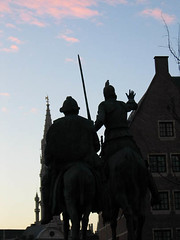
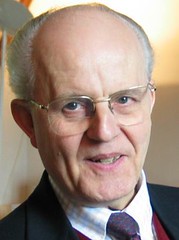
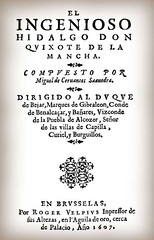

No hay comentarios:
Publicar un comentario